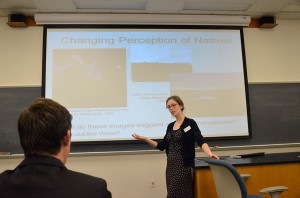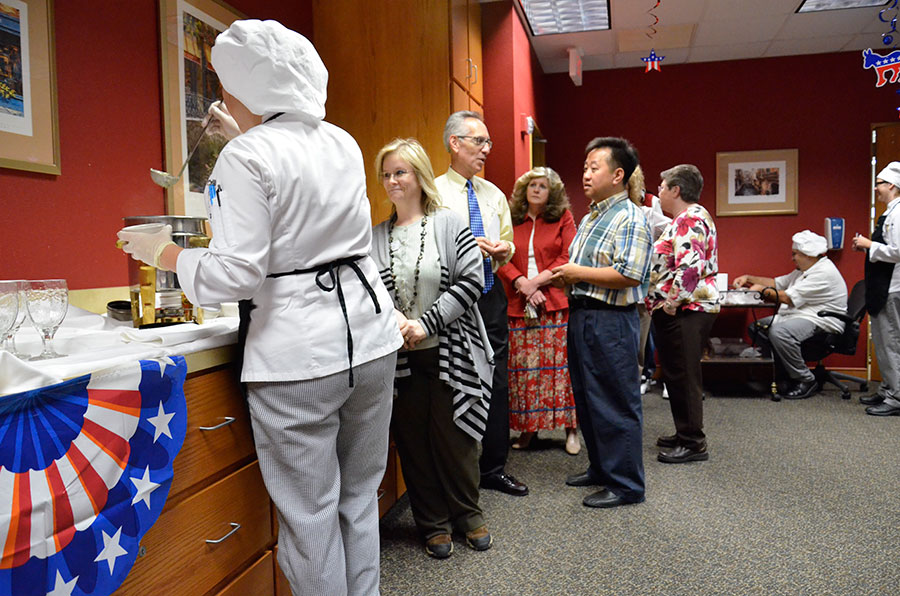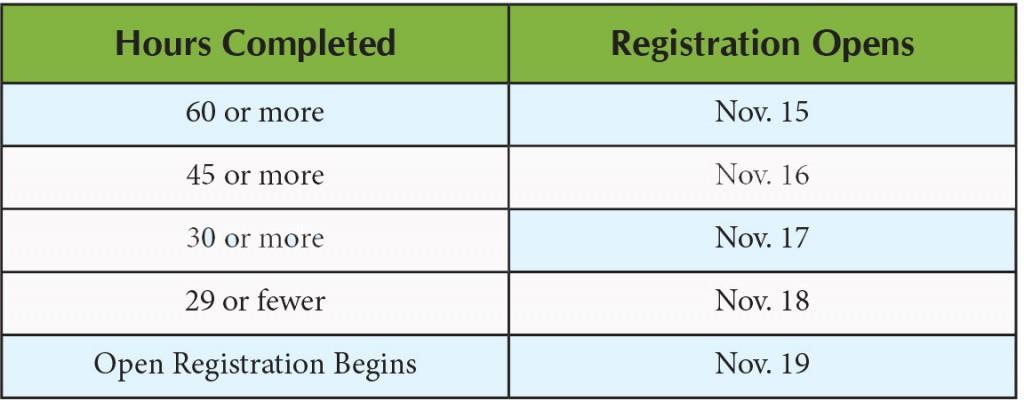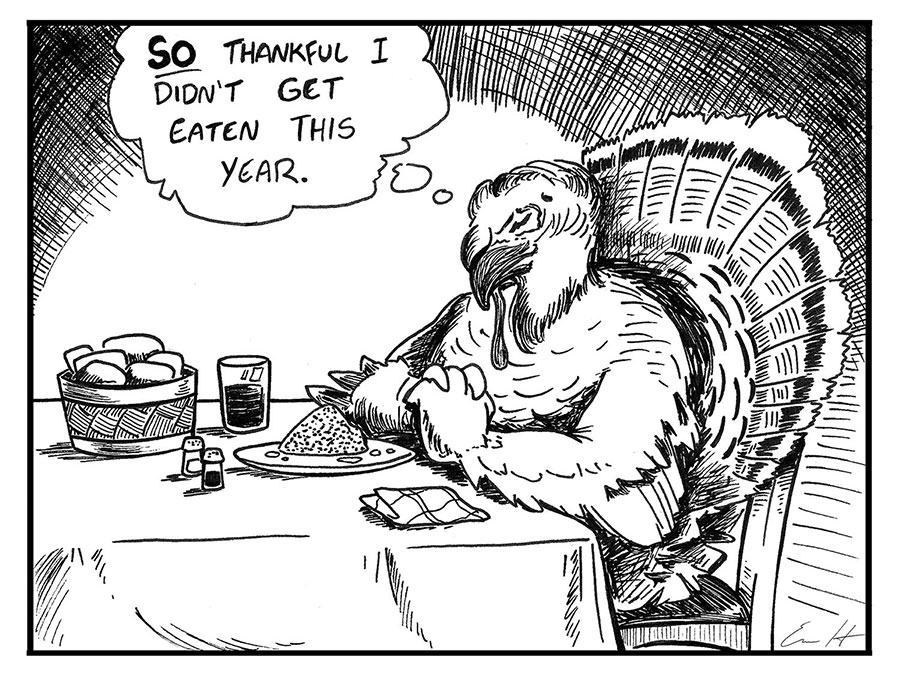By Karen Gavis/managing editor

David Reid/The Collegian
This semester, SE history instructor Kallie Kosc began teaching a class from a Native American perspective.
Kosc said she had observed from class discussions that many of her students were interested in the subject but had several misconceptions.
“This is the first time we’ve offered a Native American history course,” she said. “They have and still do play an important role in our country. Part of our class is to dispel the myth that they ceased to play any role, especially, after the colonization of America.”
The relationship between Native Americans and the federal government has often been strained, Kosc said. This is partly because the government wants them to assimilate and do away with their traditions. Yet, when applying for federal recognition, they have to prove their tribal traditions have been maintained.
“It does cast our nation not in a beautiful light sometimes,” she said. “So it is kind of difficult to talk about.”
Kosc does not have native ancestry but thinks some of her students do, based on family stories. Kosc said one of the reasons more people may not claim native ancestry is because of situations like that Elizabeth Warren recently experienced. Warren, who recently won a Massachusetts Senate seat, was attacked by her opponent for claiming native ancestry without being enrolled in a federally recognized tribe. Kosc said the subject is ripe with controversy.
“Whether or not you have official documentation does not matter as much,” she said. “What matters is, is this a part of your identity?”
Many groups exist for different ethnicities, but people do not see them for Native Americans, Kosc said, probably because people think Native Americans are all or mostly gone.




























